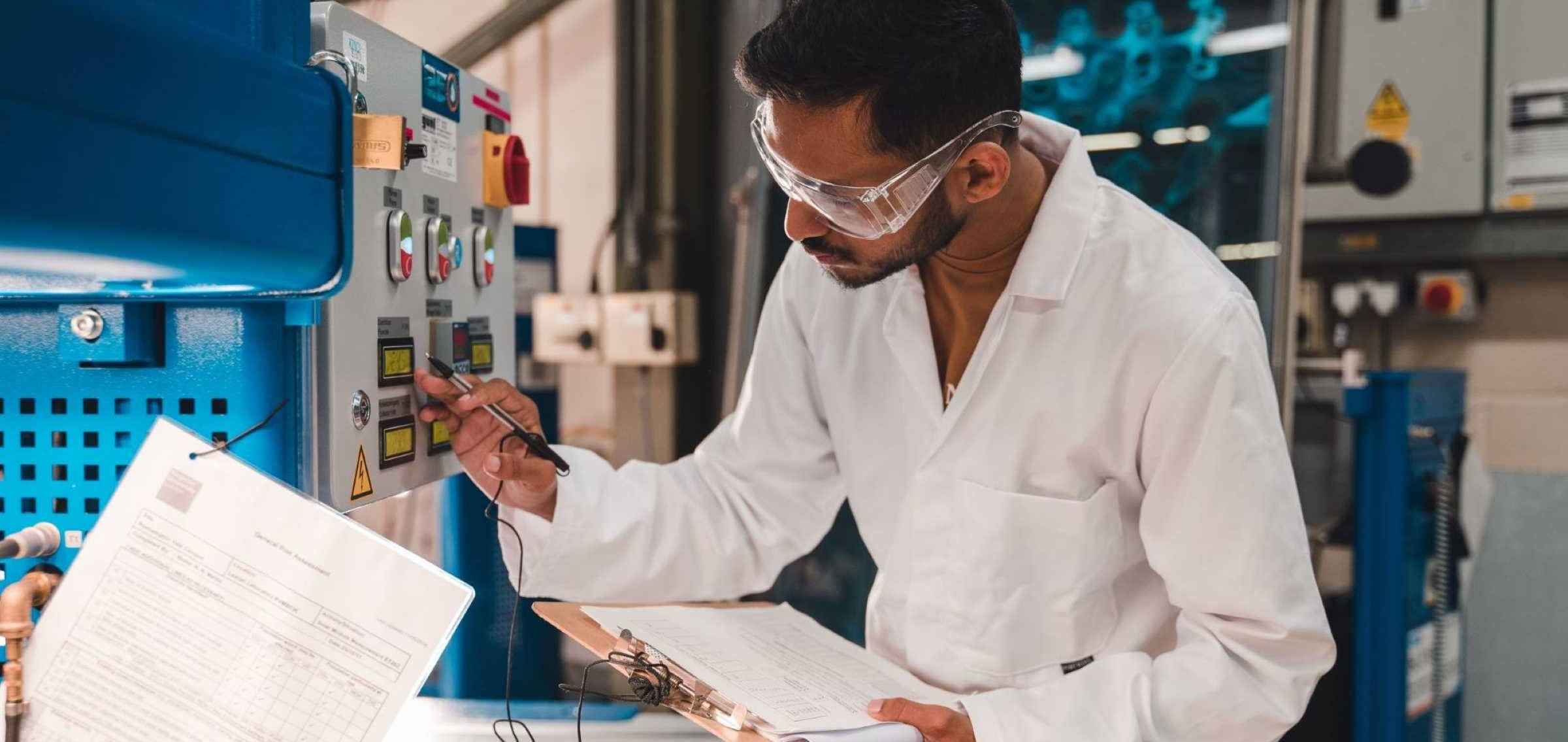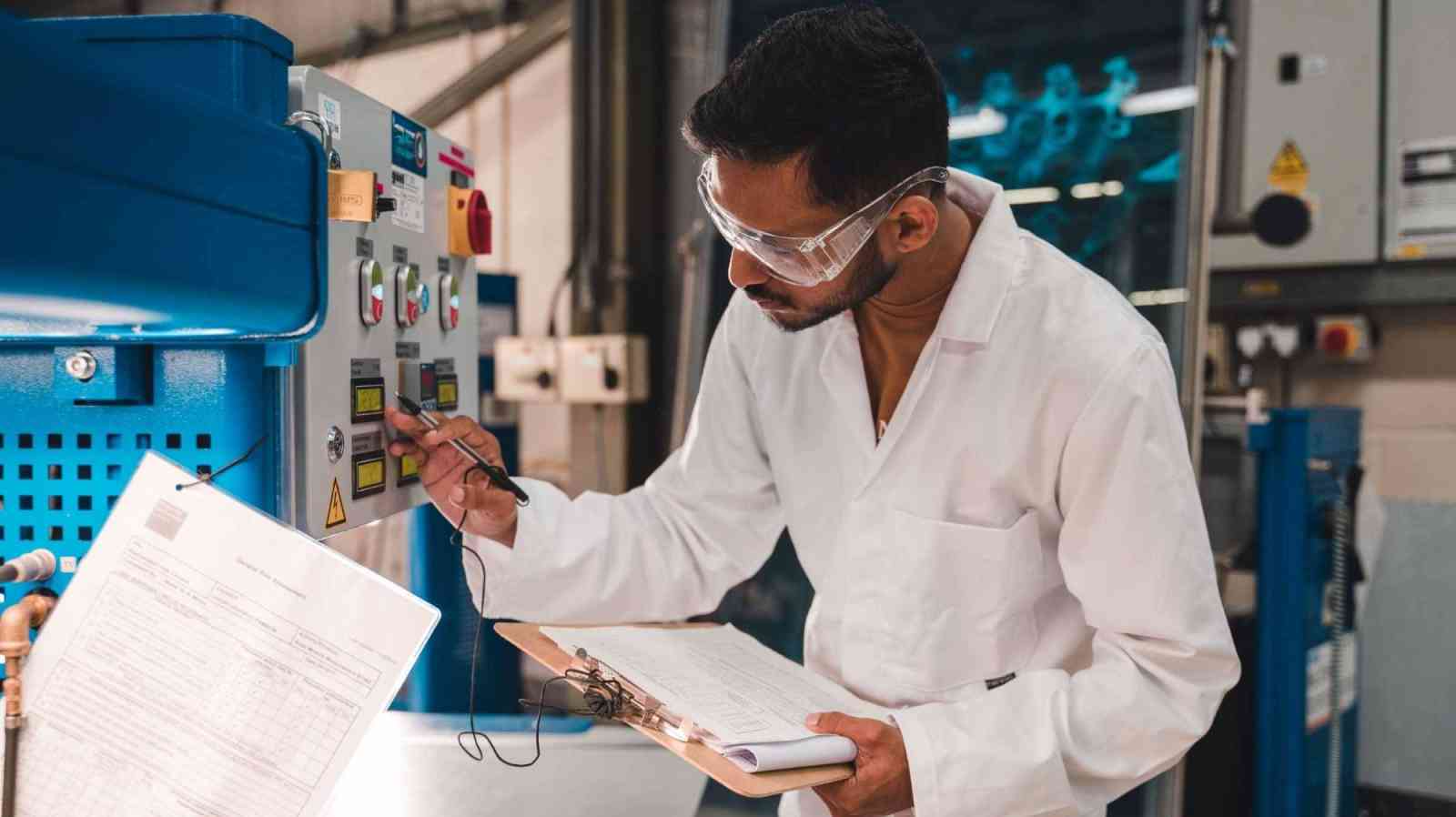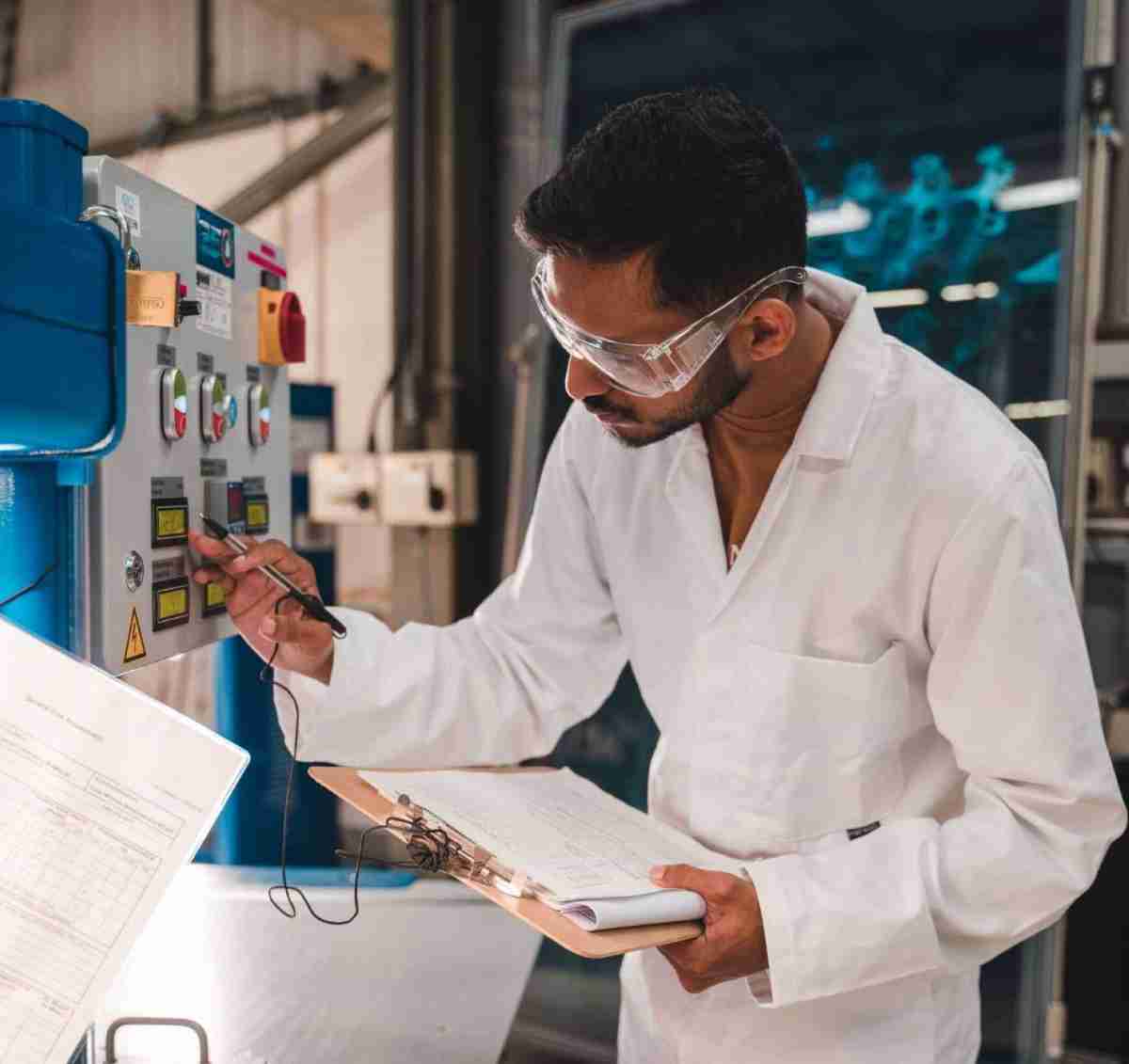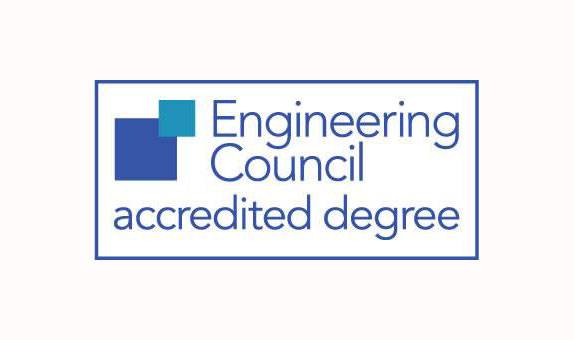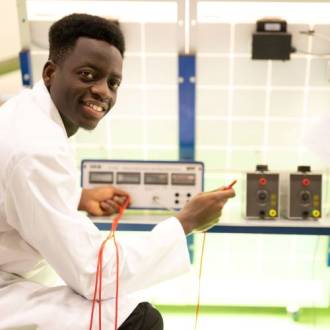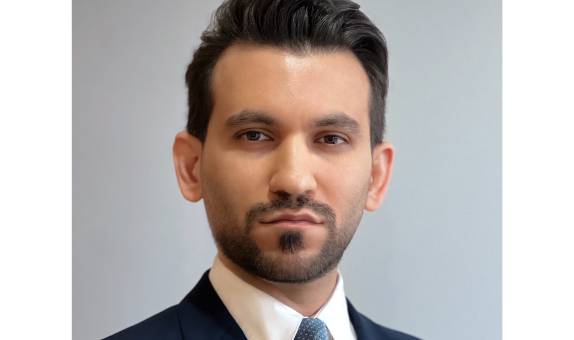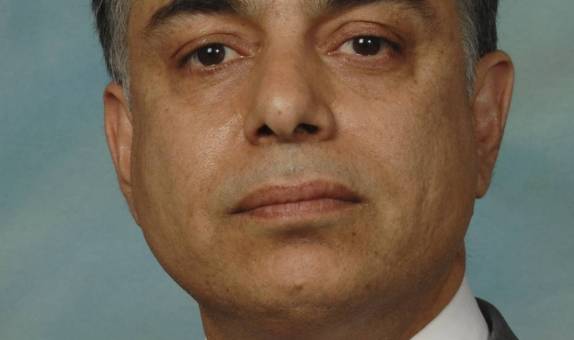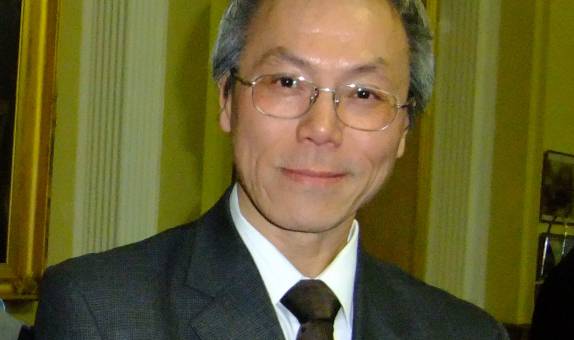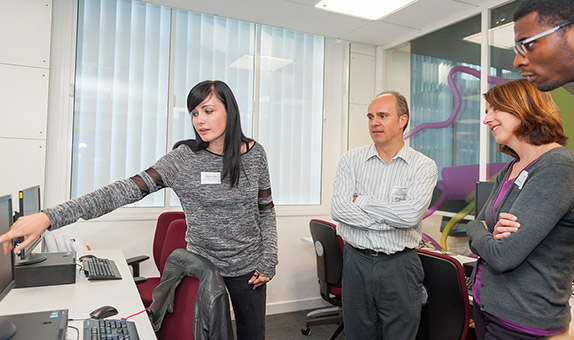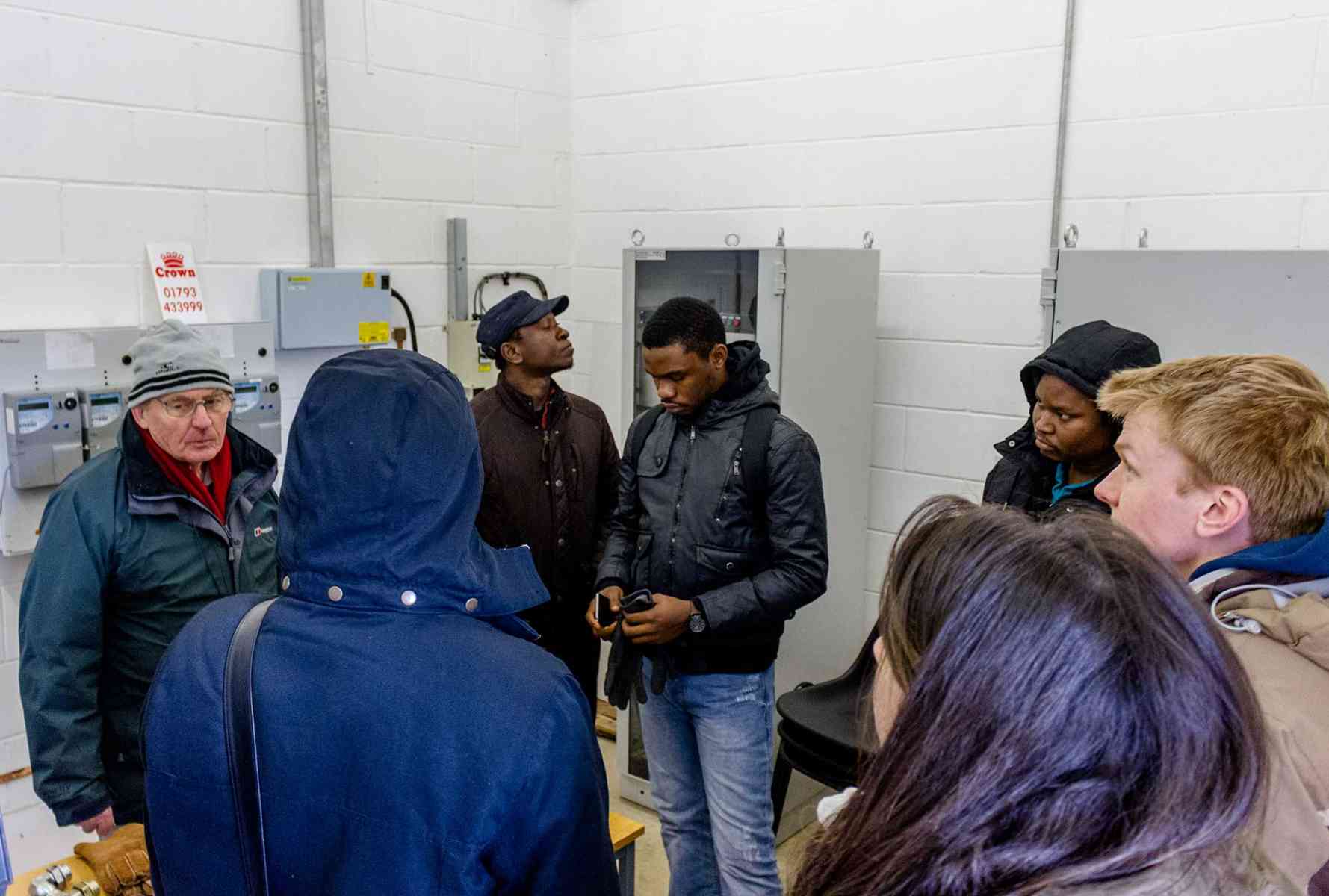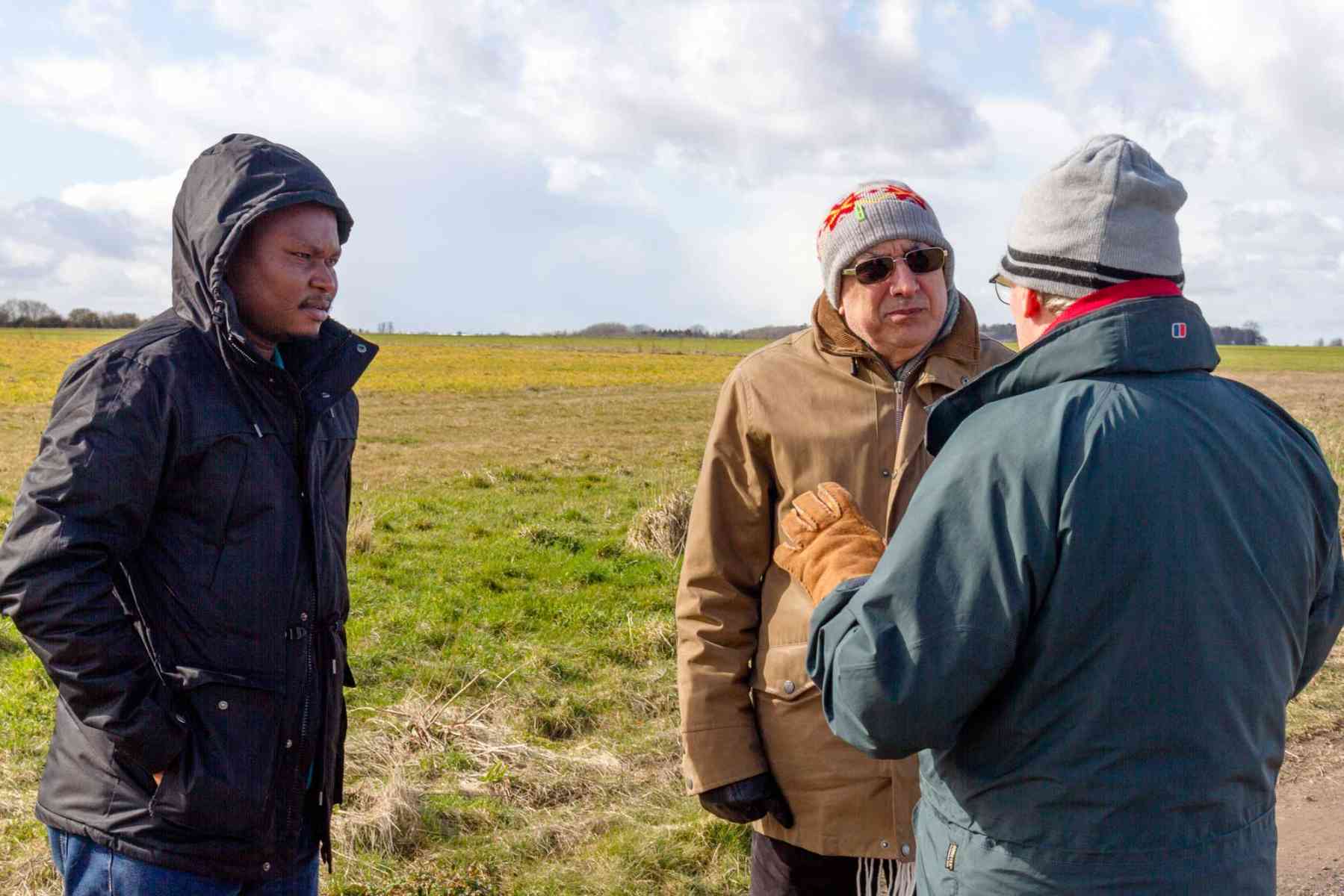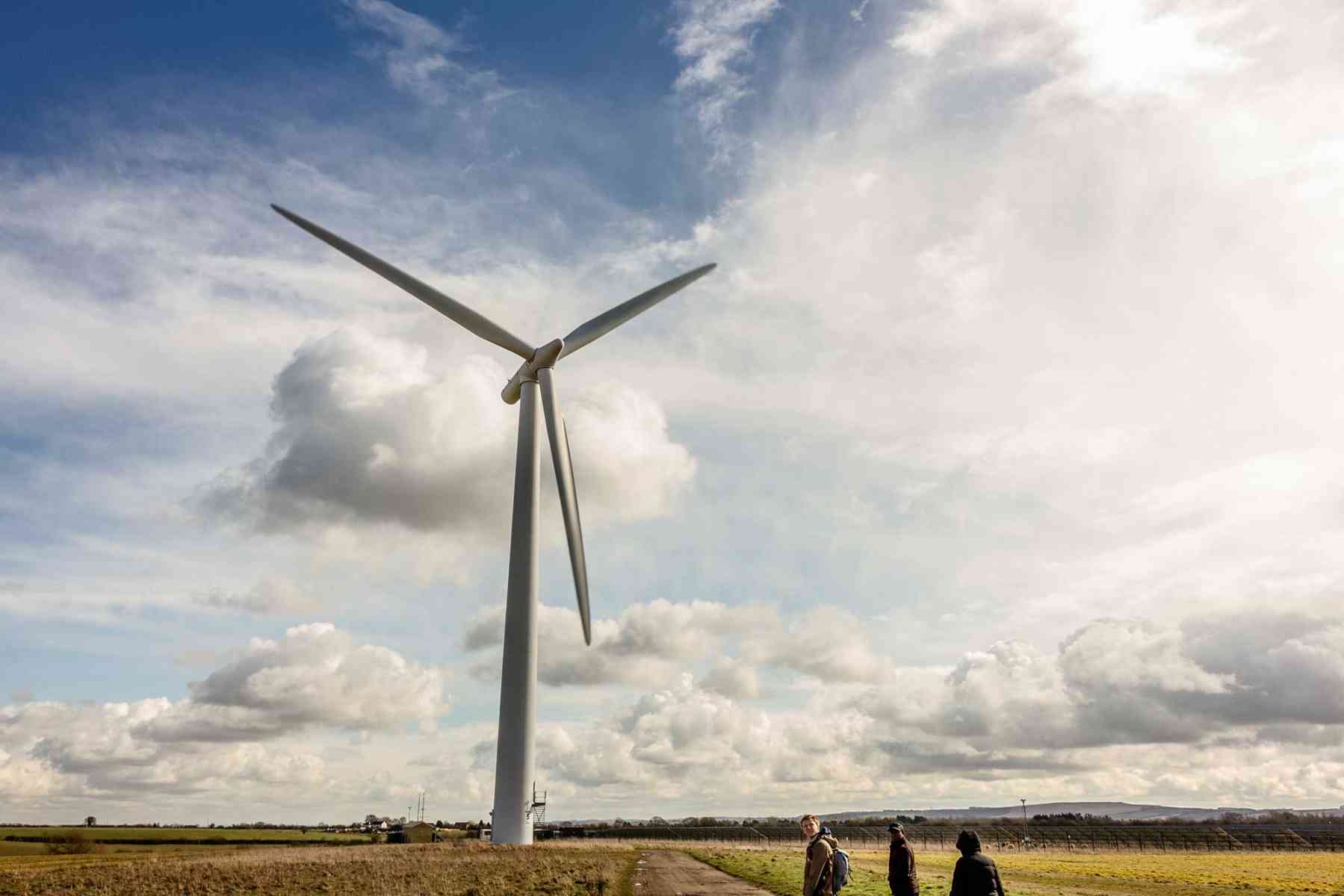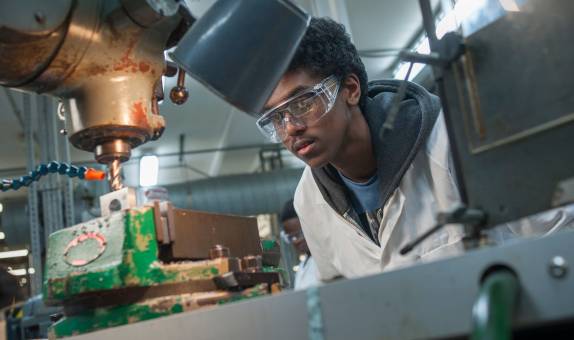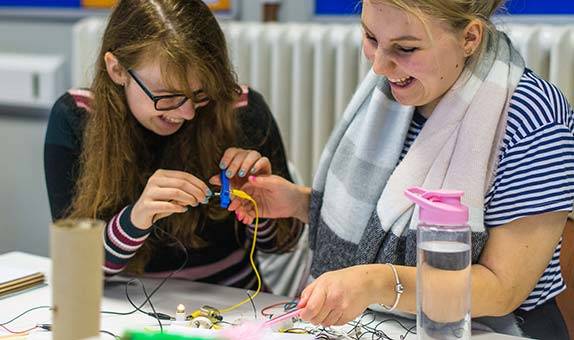Renewable Energy Engineering MSc
Why choose this course?
Climate change is a major challenge for the 21st century, requiring an alternative supply of cleaner energy from renewable sources. This course is designed with an engineering focus that deals with applications, combined with the business element; applicable whether you work for a large organisation or a small-to-medium-size enterprise.
You will gain skills and expert knowledge in solar power, wind power, hydrogen and fuel cell technologies, renewable energy business and management. You will use computer-aided simulation technologies such as Polysun for solar energy applications, windPRO for wind farm applications and GaBi for life cycle assessment. Through option modules, you will be able to specialise in project engineering and management, risk management or engineering design and development. Advanced topics include 3D solid modelling and simulation, and computational fluid dynamics (CFD) analysis and simulation.
| Mode | Duration | Start date |
|---|---|---|
| Full time | 1 year | September 2024, January 2025, September 2025 |
| Full time | 2 years including professional placement | September 2024, January 2025, September 2025 |
| Part time | 2 years | September 2024, January 2025, September 2025 |
Important: if you are an international student requiring a Student Route visa to study in the UK you will also need an ATAS certificate for this course.
| Main Location | Roehampton Vale |
Reasons to choose Kingston University
- You will prepare for a career in a wide range of industries, including automotive, aerospace, construction, petroleum, power and manufacturing.
- The course meets the requirements for Further Learning for a Chartered Engineer (CEng) if you already have an Accredited CEng (Partial) BEng (Hons) or an Accredited IEng (Full) BEng/BSc (Hons).
- Kingston has excellent industrial links which have developed throughout many countries. Examples include work with: Matra-Marconi Space, Ericsson, Balfour Beatty, the National Health Service, and British Gas.
Why renewable engineering?
Find out about the importance of this field of study.
Global warming and the consequences of climate change will increasingly affect both developing and developed countries, especially if the greenhouse gases currently increasing carbon dioxide in the atmosphere are not brought to an acceptable level.
A global priority for the 21st century must be to tackle CO2 emissions from fossil fuels, replacing them with sources of energy that are cleaner, sustainable and renewable. According to the International Panel for Climate Change (IPCC), the world's current use of renewable energy is only 13% of overall energy consumption.
In response to this, European Commission directives set a 20% reduction in the use of fossil fuel in Europe by 2020 and a 15% increase in the use of renewable energy in the UK. This means there are business incentives for developing alternative energy resources and technologies as a substitute for fossil fuel technology.
With the expected global growth in the renewable energy sector, there will be a crucial need for qualified and skilled engineers with specialist knowledge of the relevant technology. This MSc course focuses on viable sustainable and renewable sources of energy conversion based on systems using solar, wind and bio technologies.
Accreditation
The MSc will meet, in part, the academic benchmark requirements for registration as a Chartered Engineer. Accredited MSc graduates who also have a BEng(Hons) accredited for CEng, will be able to show that they have satisfied the educational base for CEng registration.
It should be noted that graduates from an accredited MSc programme, who do not also have an appropriately accredited honours degree, will not be regarded as having the exemplifying qualifications for professional registration as a chartered engineer with the Engineering Council; and will need to have their first qualification individually assessed through the individual case procedure if they wish to progress to CEng.
Find out more about Further Learning by visiting the Institution of Mechanical Engineers website.
Accreditation is a mark of assurance that the degree meets the standards set by the Engineering Council in the UK Standard for Professional Engineering Competence (UK-SPEC). Some employers recruit preferentially from accredited degrees, and an accredited degree is likely to be recognised by other countries that are signatories to international accords.
Please check the Engineering Council website for more information about accredited degrees.
Further learning details are available on the Institution of Mechanical Engineers website.
What you will study
The course provides an in-depth knowledge of renewable energy systems design and development, commercial and technical consultancy and project management within the sustainable engineering environment.
You will gain technical skills and knowledge in solar power, wind power, hydrogen and fuel cell technologies, as well as renewable energy business and management. In addition, you will gain practical skills in up-to-date computer-aided simulation technologies such as Polysun for solar energy applications, WindPRO for wind farm applications and GaBi for Life Cycle Assessments (LCA).
Option modules enable you to specialise in project engineering and management, as well as risk management or engineering design and development. Advanced topics, such as 3D solid modelling, computer-aided product development and simulation, and computational fluid dynamics (CFD) analysis and simulation allow you to gain further practical and theoretical knowledge of analytical software tools used in product design.
Please note that this is an indicative list of modules and is not intended as a definitive list.
If you start this course in January, you will complete the same modules as students who started in September but in a different format – please contact us at SECAdmissions@kingston.ac.uk for more information.
Teaching on this course usually takes place in two separate specific week blocks (Monday to Friday, 9am to 5pm). For further details please contact secpgstudentoffice@kingston.ac.uk.
For a student to go on placement they are required to pass every module first time with no reassessments. It is the responsibility of individual students to find a suitable paid placement. Students will be supported by our dedicated placement team in securing this opportunity.
Modules
Professional placement
Core modules
Fuel Cells Technology
15 credits
This broad-based module comprehensively examines fuel cell technology, the principle engineering methodologies for producing hydrogen and electricity as a prime source of power and the relevant applications for renewable energy generation. The content continues by considering how the design and manufacturing processes involved may be applied in the development and optimisation of new and innovative renewable energy systems. The content concludes by examining and evaluating some of the key issues relating to environmental concern as well as socioeconomical impact of fuel cell policy.
The module is primarily delivered through formal lectures and simulation for life cycle assessment sessions, supported by case studies and tutorials, with comprehensive course material available via CANVAS.
Set against the background of climate change, sustainability issues, the acquisition and development of renewable energy sources and how these factors are influenced by government and international organisations, thus affecting business decision making. The comprehensive content examines the different aspects of social, economic, and environmental business management and how this can create operational efficiencies and a competitive advantage. The module also considers the aspects of corporate social responsibility.
Wind Power Technology
15 credits
The comprehensive content of this module examines the measurement and assessment of wind resources together with the principles and technology of machines used in the generation of power from the wind, including their aerodynamics, the aero-elastic and fatigue characteristics of their materials and the operation of ancillary equipment including gear boxes and electrical machines.
The module also considers the latest developments and technical progress of wind powered installations and covers all aspects of life-time project management, including planning and public acceptance, costing and financial incentives, technologies, plant operation including maintenance and power system integration.
Set against the background of climate change, sustainability issues, the acquisition and development of renewable energy sources and how these factors are influenced by government and international organisations, thus affecting business decision making. The comprehensive content examines the different aspects of social, economic, and environmental business management and how this can create operational efficiencies and a competitive advantage.
The module also considers the differential effect applicable to varying industries and concludes by focusing on aspects of corporate social responsibility.
Solar Power Technology
15 credits
This is a core module which provides a detailed examination of the solar energy conversion process, system design and applications. The comprehensive content considers how the principles of solar energy, as a prime source of power, can be used in the design, development and manufacture of relevant energy systems and technologies. The module content examines current and future technological requirements and considers key energy policies, practices and influences surrounding solar energy deployment.
The module also considers the latest developments and technical progress of solar powered installations and covers all aspects of life-time project management, including planning and public acceptance, costing and financial incentives, technologies, operational and maintenance aspects, and power system integration.
Set against the background of climate change, sustainability issues, the acquisition and development of renewable energy sources and how these factors are influenced by government and international organisations, thus affecting business decision making. The comprehensive content examines the different aspects of social, economic, and environmental business management including social responsibility and how this can create operational efficiencies and a competitive advantage.
Renewable Design and Performance Analysis
30 credits
This module introduces you to the practical and virtual skills needed in the design and development of renewable power systems for solar, wind and fuel cells technologies, and how you can individually, or as part of a team, assess the viability of, and implement such developments.
This module will equip you with cognitive and practical skills for conceptual research, design, and critical evaluation of performance characteristics of relevant renewable energy powered engineering systems to minimise greenhouse gas (GHG) emissions. This would lead to the design and development of environmentally benign products. The module delivery is in the format of lectures, hands on practical and tutorials. A significant part of the teaching time is spent in laboratory sessions during which you will work in small groups, involving peer group activities, as well as learning how to use the latest software technologies for individual investigative assignment. The teaching material will be influenced by extensive research activities of the academic staff engaged in delivery of the module. Feedback and feed forward in the form of formative assessments will be organised.
Research Techniques, Innovation and Sustainability
30 credits
Research Techniques, Innovation and Sustainability equips you with the skills and knowledge required to select and justify a research topic and then to plan and execute that research project. Research is a broad topic covers a variety of activities that range from undertaking a project as part of an academic programme, through research and development in the commercial environment, to acquiring information to inform projects undertaken as part of routine business practice. This module introduces research in these contexts and allows you to develop your own research plan. As part of the module, you will consider setting research questions and determining hypotheses, acquire relevant information and data, apply suitable analytical techniques, and evaluate the significance and potential applications of their research findings. You will also develop your innovation skills through a combination of workshops and team working, resulting in submission of an innovation proposal aimed to address UN Sustainable Development Goal 11, Sustainable Cities and Communities.
The module covers many practical aspects surrounding research in the commercial environment including intellectual property and professionalism, and sustainability is embedded throughout the module both in course content and via development of the innovation proposal.
Dissertation
60 credits
Drawing on previous knowledge and experience, the dissertation module allows you to study an area of interest within your chosen field in significant depth. In undertaking the dissertation, you will develop not only a deeper understanding of your subject area but will also be able to demonstrate a high level of autonomy in terms of project dissertation planning and management. You will be able to demonstrate knowledge and competence in reviewing existing published literature and data and, through your own efforts, apply one or more of a range of research methods to collect and analyse data and draw well-founded conclusions as a result of your research. The main output from the module is a final report but the option is available for you to prepare their work in the format of an article suitable for submission to a relevant conference or journal.
Optional modules
Advanced Product Modelling
15 credits
This module is structured in a way to develop an in-depth understanding of computer-aided design techniques such as solid and surface modelling that can support the development of engineering products. This module also aims to help you develop a fundamental understanding of the role of these technologies within a Product Lifecycle Management (PLM).
Advanced Computational Fluid Dynamics
15 credits
This module extends your knowledge and skills beyond the basic fluid mechanics methods which are normally introduced at early undergraduate level, and to provide a theoretical and analytical introduction to Computational Fluid Dynamics (CFD). In the lectures, emphasis is placed on the numerical models and analytical techniques in fluid dynamics and heat transfer and some of the more advanced theories behind CFD.
The module also provides you with advanced computational knowledge in fluid dynamics, therefore enhancing your employment potential in a wide range of industries.
Professional placement
Professional Placement
120 credits
The Professional Placement module is a core module if you're following a masters programme that incorporates an extended professional placement. It provides you with the opportunity to apply your knowledge and skills in an appropriate working environment, and develops and enhances key employability and subject specific skills in your chosen discipline. You may wish to use the placement experience as a platform for a major project or your future career.
It is your responsibility to find and secure a suitable placement opportunity; this should not normally involve more than two placements which must be completed over a minimum period of 10 months and within a maximum of 12 months. The placement must be approved by your Course Leader prior to commencement to ensure its suitability. You will have access to the standard placement preparation activities offered by the Student Engagement and Enhancement (SEE) group.
Read more about the postgraduate work placement scheme.
Please note
Optional modules only run if there is enough demand. If we have an insufficient number of students interested in an optional module, that module will not be offered for this course.
Mechanical Engineering at Kingston
What our students say
Work placement scheme
Many postgraduate courses at Kingston University enable students to take the option of a 12-month work placement as part of their course. Although the University supports students in finding a placement and organises events to meet potential employers, the responsibility for finding the work placement is with the student; we cannot guarantee the placement, just the opportunity to undertake it. You may find securing a professional placement difficult as they are highly competitive and challenging, but they are also incredibly rewarding. It is very important to prepare and apply yourself if this is the route you wish to take. Employers look for great written and oral communication skills and an excellent CV/portfolio. As the work placement is an assessed part of the course, it is covered by a student's Student Route visa.
Find out more about the postgraduate work placement scheme.
Entry requirements
Teaching and assessment
What this course offers you
- This course offers you hands-on lab experience in the primary renewable energy technologies, covering solar PV, solar thermal, wind power, and hydrogen fuel cell technologies.
- This course is part of the Alternative Energy Group for Renewable Energy Engineering at Kingston University.
- This course offers project-based experience in virtual renewable energy system design, providing access to widely adopted industry software such as Polysun for energy system simulation and windPRO for wind farm design and planning.
- You'll gain hands-on virtual design experience using industry-recommended software technology in CAD, CFD and FEA analysis.
- This program equips you with the ability to conduct software-based carbon footprint and Life Cycle Assessments (LCA) analysis using GaBi, a widely adopted industrial software.
- The programme incorporates specialist field trips for group projects. You also have the opportunity to undertake research and industry-relevant dissertation projects, including the chance to work on research areas within wind power, solar power and biofuel.
- The programme will develop your professional, analytical and management skills, as well as improving your technical skills and knowledge. For example, you will gain communication, teamwork, IT and problem-solving skills.
- You can choose to study the course full time or part time to fit in with work commitments. September and January start dates give you extra flexibility. The programme is modular, with most of the modules delivered over one week.
- We regularly review all our postgraduate courses to make sure that they are up to date, reflect industry needs and are comparable to other university courses.
Who teaches this course?
The course is taught by the Department of Mechanical Engineering. Staff have a wide range of experience across research and industry and continue to practise and research at the cutting edge of their discipline. This ensures that our courses are current and industry-informed, meaning you get the most relevant and up-to-date education possible.
The Department has strong links with industry leaders, including Delphi, Lotus Engineering, MAN and Thales. Many of our innovative, hands-on projects involve students as well as academics and receive national and global coverage.
Our applied approach to teaching is supported by dedicated laboratories for mechanical, automotive and motorsport engineering. These include wind tunnels, state-of-the-art rapid prototyping and manufacturing machinery, a fully-equipped materials lab, engine test cells, an automotive diagnostics lab featuring the latest industrial software packages, and a modern electronics/robotics lab with a robot and electronic equipment from National Instruments.
Our courses encompass applications from all areas of engineering, giving our students the knowledge and flexibility they need to work across many industries, both in the UK and overseas.
Postgraduate students may run, or assist in, lab sessions and may also contribute to the teaching of seminars under the supervision of the module leader.
Fees for this course
Additional costs
Depending on the programme of study, there may be extra costs that are not covered by tuition fees which students will need to consider when planning their studies. Tuition fees cover the cost of your teaching, assessment and operating University facilities such as the library, access to shared IT equipment and other support services. Accommodation and living costs are not included in our fees. Where a course has additional expenses, we make every effort to highlight them. These may include optional field trips, materials (e.g. art, design, engineering), security checks such as DBS, uniforms, specialist clothing or professional memberships.
Our modern teaching environment
There is a wide range of facilities for practical work at our Roehampton Vale campus, where this course is based. You will have access to a modern environment with the latest technology and industry-standard equipment, including:
- rolling roads;
- automotive testing facilities;
- a Lotus Exige; and
- cars and motorcycles built by engineering students.
We also have a dedicated postgraduate workroom with high spec PCs and a range of software.
The £4 million Hawker Wing provides three floors of extra space for students and staff at Roehampton Vale, including improved learning and teaching facilities.
Field trip gallery
How the engineering staff work with industry partners
Our excellent industrial links have developed over many years and throughout many countries. Some examples include work with:
- Matra-Marconi Space Ltd;
- Ericsson;
- Balfour Beatty;
- The National Health Service; and
- British Gas.
Our Industrial Advisory Committee reviews and advises industrial activities. The Committee acts as a forum for discussing teaching, research and consultancy to industry.
After you graduate
Graduates have gone on to work in organisations such as Atkins, Alstom Power, Inditex, Vattenfall, Shell, and SGS UK Ltd. The course is also an ideal foundation for a PhD and an academic or research career in renewable energy.
Engineering research
Many academic staff are engaged in a range of research and consultancy activities funded by the Research Councils, the European Union, the government, trade unions and industry. These activities ensure our staff are in touch with the latest industry thinking and bring best practice to your studies.
Research centres
Many of our staff in the Faculty are research active. This ensures they are in touch with the latest thinking and bring best practice to your studies.
Current research projects at the Applied Engineering Research Centre cover the following areas:
- CFD and fire modelling
- applied engineering
- manufacturing
- thermochemical energy storage
- material processing and surface engineering.
Course changes and regulations
The information on this page reflects the currently intended course structure and module details. To improve your student experience and the quality of your degree, we may review and change the material information of this course. Course changes explained.
Programme Specifications for the course are published ahead of each academic year.
Regulations governing this course can be found on our website.
